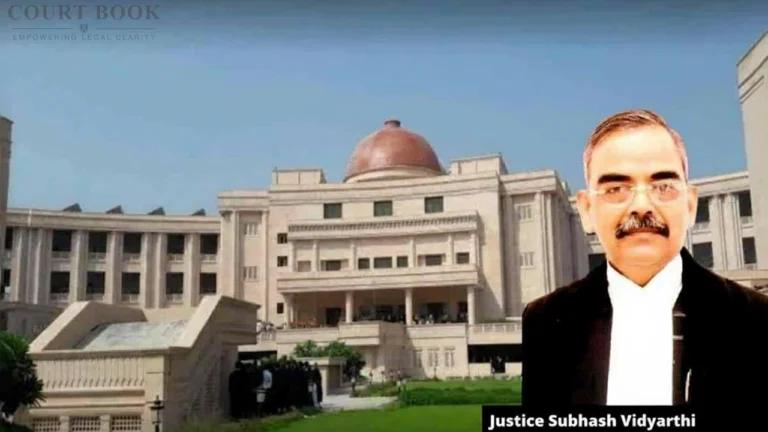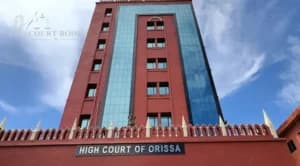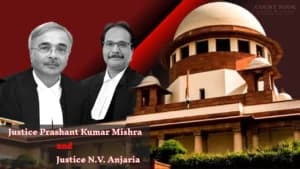Lucknow, October 16 - The Allahabad High Court's Lucknow Bench, on Thursday, granted bail to several railway officers accused in the East Central Railway's Chief Loco Inspector (CLI) examination paper leak case, observing that continued detention would violate their fundamental right to a speedy trial. Justice Subhash Vidyarthi delivered the detailed order after hearing a cluster of connected bail pleas filed by eight accused persons, including Sushant Prashar @ Parashar, Niraj Kumar Verma, and Surjeet Singh.
The matter stems from a CBI probe into a massive paper leak racket that allegedly involved railway officials, middlemen, and candidates from the Deen Dayal Upadhyaya (DDU) division in Uttar Pradesh.
Background
According to the Central Bureau of Investigation (CBI), the accused officials conspired to leak the question paper for the CLI departmental examination scheduled on March 4, 2025, in exchange for hefty bribes from candidates. The agency claimed that it recovered over ₹1.14 crore in cash, handwritten copies of the leaked question paper, and several documents linking officers and candidates in a complex network of corruption.
Among the principal accused, Sushant Prashar, a railway official tasked with preparing the exam paper, allegedly handed over a handwritten English version to a subordinate, Anish Kumar, who later passed it to Niraj Kumar Verma for distribution among paying candidates.
The CBI said several candidates were caught "memorising the leaked questions" at various locations, including a marriage lawn and staff residences, on the eve of the exam.
However, the defence argued that the examination was an internal departmental test, not a "public examination," and therefore not covered under the Public Examinations (Prevention of Unfair Means) Act, 2024. It was also pointed out that the question bank was already public, containing around 1,300 questions available online for practice.
Court’s Observations
During the marathon hearing, Justice Vidyarthi examined the voluminous charge sheet-spanning more than 70 witnesses and thousands of pages-and remarked that the trial was unlikely to conclude soon.
"The State cannot keep an undertrial in custody indefinitely," the court noted, echoing the Supreme Court’s ruling in Javed Gulam Nabi Shaikh v. State of Maharashtra (2024) that prolonged incarceration "amounts to punishment before conviction."
The bench observed,
"If the prosecution itself admits that the investigation is complete and sanction for prosecution is still awaited, further detention serves no legal purpose."
Counsel for the accused highlighted several procedural lapses, including non-compliance with Section 105 of the Bharatiya Nagarik Suraksha Sanhita (BNSS) which mandates audiovisual recording of searches and seizures. The defence also cited the lack of CFSL reports, voice authentication, and independent witness verification of the alleged recoveries.
The court found weight in the argument that the handwriting and voice samples had not yet been scientifically verified, and that the evidence linking the applicants directly to the recovered materials remained circumstantial at this stage.
"The presumption of innocence remains the cornerstone of our criminal system," Justice Vidyarthi said, adding that bail cannot be denied merely due to the seriousness of allegations when the trial’s commencement itself is uncertain.
Decision
After considering the rival submissions, the court decided to grant bail to the applicants, including Sushant Prashar, Surjeet Singh, Sanjay Kumar Mishra, Niraj Kumar Verma, Ajit Kumar Singh, Raj Narayan Singh Yadav, Rakesh Kumar, and Ramayan.
The bench relied on precedents such as Sanjay Chandra v. CBI (2012) and Satender Kumar Antil v. CBI (2022), which underline that bail is the rule and jail the exception.
"The accused are not flight risks; they have roots in society, no prior criminal history, and the investigation stands concluded," the order stated. The court also directed the accused to cooperate with the trial, not tamper with evidence, and not contact witnesses.
Before concluding, Justice Vidyarthi remarked,
"The constitutional mandate of Article 21 cannot be diluted in the name of severity of offence. Liberty, once lost, cannot be restored easily."
With this, the court signaled that while corruption in recruitment examinations is a grave concern, prolonged pre-trial custody without timely prosecution cannot be justified.
Case Title:- Sushant Prashar @ Sushant Parashar vs. Central Bureau of Investigation














